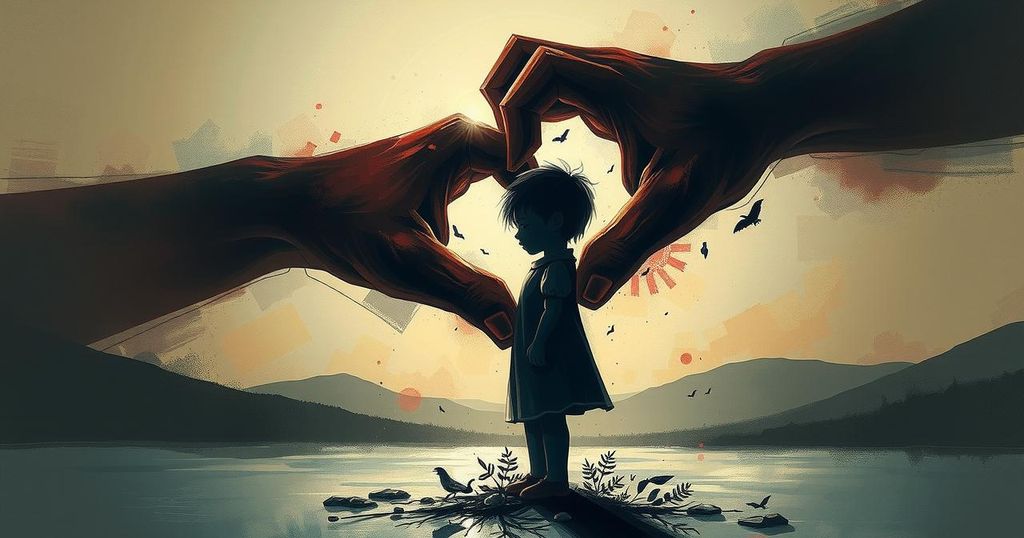The Democratic Republic of Congo accused Rwanda of fabricating a video that depicted the capture of FDLR fighters, aiming to discredit its military. M23 rebels have recently seized control of key eastern cities, exacerbating an already critical humanitarian crisis with nearly 500,000 displaced. Calls for a ceasefire by the African Union and the UN highlight the urgent need for peace in the region.
The Democratic Republic of Congo (DR Congo) has accused Rwanda of staging a deception involving the alleged capture of fighters associated with the Rwandan genocide. This allegation arose after the Rwandan-backed M23 rebels reported the apprehension of fighters from the Democratic Forces for the Liberation of Rwanda (FDLR), a group formed by Hutus involved in the 1994 genocide against Tutsis. The Congolese military contends that a video purportedly showing the surrender of 20 FDLR rebels was fabricated as part of Rwanda’s strategy to discredit DR Congo’s forces.
According to the Congolese military, the Rwandan authorities dressed former FDLR prisoners in military attire to misrepresent them as newly captured individuals in Goma. They characterized this act as a poorly coordinated attempt to justify Rwanda’s continued military presence and actions within DR Congo. Meanwhile, the M23 has made significant territorial gains, including the seizure of Bukavu and Goma, triggering a humanitarian crisis that has displaced approximately 500,000 individuals, as reported by the United Nations.
Rwanda has long cited the presence of FDLR militants in eastern DR Congo to rationalize its military support for the M23 group. Despite initially denying its involvement with M23, Rwanda asserts its rights to intervene due to security concerns regarding the FDLR. Moreover, United Nations experts have assessed that there are between 3,000 and 4,000 Rwandan troops currently active in the eastern region of Congo, as they monitor the conflict’s evolution.
The 1994 Rwandan genocide resulted in the loss of up to 800,000 lives, predominantly from the Tutsi community, as Hutu militias executed mass killings over a span of 100 days. Many perpetrators fled to what is now DR Congo, where they formed the FDLR, exacerbating tensions in the region. Rwandan President Paul Kagame regards this group, described as a “genocidal militia,” as a significant threat to national security.
Tensions remain high within DR Congo’s eastern districts, evidenced by recent violent incidents. Gunfire erupted during a rally led by M23 rebel chiefs in Bukavu, resulting in chaos and numerous casualties. The rebels have accused President Félix Tshisekedi’s administration of orchestrating this attack; conversely, Tshisekedi has attributed the violence to foreign military forces operating in the region. The African Union and the United Nations have issued calls for a ceasefire and for the withdrawal of rebel forces from captured territories.
The Democratic Republic of Congo has leveled serious accusations against Rwanda regarding the manipulation of video evidence to portray captured fighters inaccurately. These tensions have heightened due to the ongoing conflict involving the M23 rebels, with significant humanitarian consequences in the region. Both the African Union and the United Nations have emphasized the need for de-escalation and a resolution to the crisis.
Original Source: www.bbc.com




